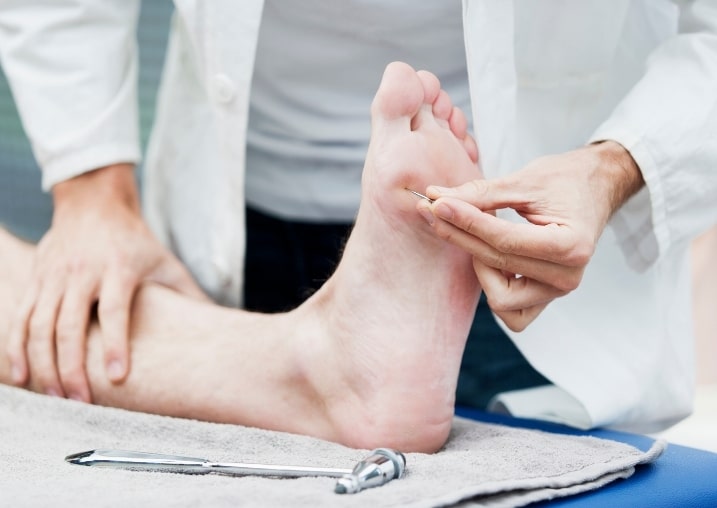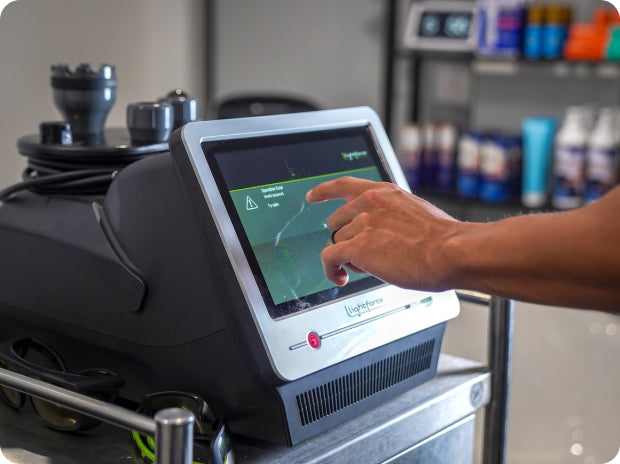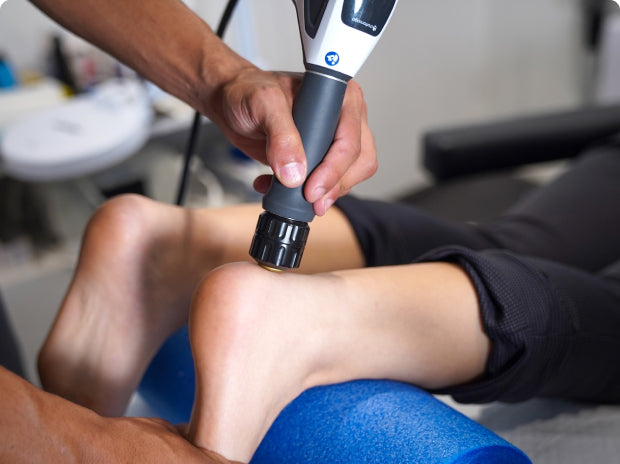
 Rated 5.0 by 70+ locals
Rated 5.0 by 70+ localsDiabetic Foot Examination
For Early Detection & Care

Stay ahead of foot problems with preventive care.
Diabetes can affect your feet in ways you might not notice at first: reduced circulation, nerve changes, or slow-healing wounds. That’s why a diabetic foot exam is so important.
At Foot HQ, our podiatrists carefully assess your feet for early signs of concern, from changes in skin and nails to sensation and blood flow.
Every examination is personalised, giving you clear advice and a plan to protect your long-term foot health. Locals trust us because we focus on prevention and early action, not just treating issues once they appear.
If you’re living with diabetes, a regular foot check can make all the difference. Book your appointment today and take a step toward safer, healthier feet.
Diabetic Foot Exams Help:
- Finds early sensation loss
- Prevents unnoticed injuries
- Guides footwear choices
- Reduces ulcer risk
- Checks blood flow
- Spots slow healing
- Guides management
- Lowers complication risk
- Detects wounds early
- Prevents infection
- Tracks healing
- Avoids hospitalisation
- Spots fungal or ingrown nails
- Finds cracks or calluses
- Prevents worsening issues
- Supports foot care
- Checks bunions or deformities
- Suggests better footwear
- Prevents pressure points
- Lowers wound risk
- Detects early bacterial or fungal infections
- Prevents systemic infection
- Guides timely treatment
- Identifies gait issues
- Prevents falls
- Suggests exercises or orthotics
- Tracks blood flow and nerve changes
- Helps adjust treatment plans
- Supports long-term foot health


What are the benefits?
-
Protect your feet – Identifies early signs of damage before they become serious.
-
Boost circulation – Checks blood flow to reduce risks linked with slow healing.
-
Maintain mobility – Detects changes in joints or structure that affect movement.
-
Prevent complications – Helps lower the chance of ulcers, infections, or hospital stays.
Why choose us for your diabetic foot care?
Diabetic Foot Exam FAQ
Why are diabetic foot assessments important?
Diabetes can affect circulation and nerves in your feet, increasing the risk of ulcers, infections, and delayed healing. A diabetic foot assessment helps detect these problems early, so they can be managed before they become serious. Regular check-ups play a vital role in preventing long-term complications.
How often should I have a diabetic foot exam?
Most people with diabetes are advised to have at least one foot exam per year. However, if you’ve had previous ulcers, wounds, or circulation issues, more frequent visits may be recommended. Your podiatrist will guide you based on your level of risk.
What does a diabetic foot assessment involve?
A comprehensive exam may include:
- A review of your medical and diabetes history
- Sensation testing to check for neuropathy
- Circulation checks to assess blood flow
- A look at skin, nails, and wounds
- A footwear review to ensure proper support
How many sessions will I need?
Most people only need a diabetic foot exam once a year, but the number of visits depends on your health and risk factors. If you have ongoing circulation problems, neuropathy, or a history of ulcers, your podiatrist may recommend more frequent check-ups to keep your feet safe.
How can Foot HQ Podiatry help prevent complications?
After your assessment, we provide tailored recommendations. This may include daily care routines, footwear advice, exercise suggestions, or wound management strategies. Our focus is on prevention, keeping your feet safe, and reducing the risk of ulcers, infections, or hospitalisation.
Do I need a referral for a diabetic foot exam?
No referral is needed to see our podiatrists for a diabetic foot assessment. You can book directly with us for your appointment.





